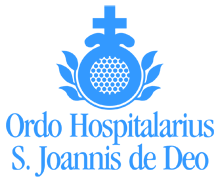
Ordo Hospitalarius S. Ioannis de Deo
Via della Nocetta, 263
00164 Roma (RM)
Tel.+39 06 6604981
Tel.+39 06 6637102
info@ohsjd.org
The Friuli Venezia Giulia Region has financed a development cooperation micro-project for implementation in 2021 with a grant of 30,000 euro. The application had been submitted by Dr. Carlo Galasso, Director of the European office of the Hospitaller Order, and himself a native of the Friuli Venezia Giulia Region.
Under the project called "Support for
Togo", the health care personnel of the Villa San Giusto sheltered residence
in Gorizia - a structure of excellence belonging to the Order’s Lombardy-Veneto
Province with over 200 beds – will share their operational experience in the
Coronavirus emergency and their anti-contagion knowhow and make it available to
the "Saint Jean de Dieu Mental Health Centre" north of the capital
Lomé, and still one of the few facilities in Togo dedicated to people who are
not self-sufficient, or suffering from dementia or psychiatric disorders.
Although Africa is still the continent which
is the least affected by the pandemic, there is widespread reluctance among the
local people to go to hospitals and health facilities for fear of contagion, and
they are consequently placing their physical and mental health in jeopardy.
The main activities of the project include
a digital training programme with remote support on the necessary anti-contagion
safety measures for staff and patients, the use of individual PPE,
environmental sanitation operations, managing symptomatic cases and handling potential
epidemic outbreaks. This will be backed by procuring and dispatching personal protection
items (masks, gloves, hand sanitisers, disinfectant gels and medicines).
The "capacity building" process
to be carried out under the project will continue to produce its effects even
after the end of the Covid-19 pandemic, thanks to the skills that will have
been acquired by the Togolese partner and disseminated among the local
population, because there will be a keener awareness of the organisational
measures and rules of conduct to be adopted to address any fresh risks of
epidemics or infectious diseases, and this will result in a lower rate of infections
and deaths, particularly among the most vulnerable groups.